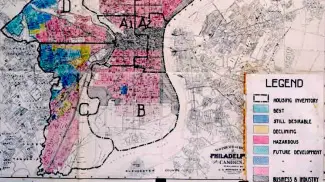Training Services
Heartset’s training offerings are currently offered under the umbrella of three major categories- Harm Reduction & Housing First, Essential Skills, & Equity in care. Select a category below to request copy of the training titles and session descriptions to share with other decision-makers. We are open to developing new or customized training topics to meet specific needs.
Harm Reduction & Housing First
Harm Reduction and Housing First are often linked to negative narratives and biases in public discourse, contributing to stigma that must be challenged not only in society but also among helpers. While abstinence-based approaches have worked for some, they have left many others behind. It is essential to approach individuals who use drugs and those who have experienced long-term homelessness with dignity and respect. Training in this category emphasizes meeting individuals where they are, with a focus on reducing harm and providing stable housing without preconditions. This approach fosters a more compassionate and effective pathway to recovery and long-term stability, ensuring that people receive the support they need in a dignified and non-judgmental manner.

Harm Reduction 101
A primer on the principles and practices of harm reduction.

Building Trust through Compassion: Harm Reduction & the Therapeutic Alliance
The aim of this training is to equip helping professionals with the necessary tools to strengthen client bonds, ultimate leading to more effective and compassionate care.
Break the cycles of shame and stigma.
Better care for those who need it most.
Essential Skills for Helpers
Awareness of social issues such as racism, health disparities, and extreme poverty is only one aspect of delivering effective, non-harmful, and competent care. Helping professionals also need practical tools to act on this knowledge through actionable frameworks like assertive engagement, motivational interviewing, and trauma-informed care. Continuously developing these skills is crucial, as social issues and best practices evolve over time. Ongoing training that emphasizes specific skills ensures that care remains relevant, culturally responsive, and effective in addressing the complex needs of clients.

Creating the Conditions for Change: Skills for Assertive Engagement
This training explores processes of disengagement, and (re)engagement, defining key factors in achieving therapeutic success.

Motivational Interviewing Core Concepts
This training explores the component parts of this semi-directive approach toward change and the necessity of fostering internal motivation in clients in order to help them resolve their ambivalence toward change.

Trauma-Informed Care
This session introduces the key components of trauma-informed care, highlights the role of intersectionality, and discusses strategies for effectively responding to trauma.

Reintegrating the Self: Managing Vicarious Trauma
This training explores a nuanced understanding of vicarious trauma and examines its negative impacts on care delivery.

Intentional Crisis Response
This training explores the nuances of preparation for crisis response and provides some tools to reach a safe and supportive de-escalation.

Prepared for the Worst: Essential Elements for Suicide Prevention
This training examines risk and protective factors, individual-level warning signs, means reduction and safety planning best practices.
Recognize and respond to trauma.
Learn crucial skills to respond to the complex experiences faced by those who are unhoused.
Equity in Care
Equity is more than an acronym used by organizations to signal their values (e.g. DEI). It is both a mindset and a skill set. Embodying an ethics of equity challenges us to move past a simple stance of fairness and think deeply about the historical and structural power dynamics at play while centering the person in front of us as more than just a statistic. These training sessions ask us to step outside of dominant cultural narratives and challenge our habits that form when we are not centering equity.

Racial Disparities in Homeless Services: How did we get here?
This training session will explore the origins and ongoing factors contributing to racial disparities in homelessness.

Windows of Opportunity: Embracing Culture in Service Delivery
Trainers will guide attendees through an in-depth analysis of the components of culture, offering nuanced perspectives, and concrete strategies for effectively integrating cultural considerations into everyday practice.

Challenging the Unseen: Strategies for Unconscious Bias
This session will examine how conscious and unconscious biases affect service provision and share several strategies to managing their impact on services.
Challenge the Power Dynamics.
Accountability and critical self-reflection are at the root of transformation.
Request Training
Are you seeking training that goes beyond the usual box-checking and inspires truly person-centered care? Enter your details to request more information and get a quote on a training plan.